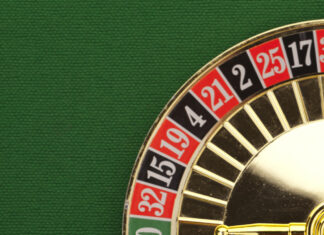
Online magazine hyperlinked to leaked Playboy photos
Dutch online magazine “GeenStijl” placed hyperlinks on its website to leaked Playboy photos published on the Filefactory and Imageshack websites. These hyperlinks made the photos more easily accessible to users. Prior to GreenStijl publishing the hyperlinks, the photos were only accessible by typing in the exact URL into a browser.
As previously discussed on MediaWrites, the Dutch Supreme Court referred preliminary questions to the CJEU concerning hyperlinking in the GS Media/Sanoma case. Advocate General Wathelet has now provided his opinion on the case, which may be indicative of the direction that the CJEU will take in its decision.
Questions put to the CJEU
The CJEU’s Advocate General Wathelet was asked by the Dutch Supreme Court to consider whether hyperlinking to a third party’s website containing copyright-protected works published without the owner’s consent can be prohibited. Under EU Directive 2001/29 (known as the Copyright Directive), the copyright owner can only prohibit hyperlinking if the hyperlinking is considered a “communication to the public” within the meaning of Article 3(1) of the Copyright Directive. The Dutch Supreme Court also asked the Attorney General to consider whether, when answering this question, it is relevant that the hyperlinker is aware of the lack of consent by the copyright holder. Should the question be answered negatively, the Dutch Supreme Court also asked whether there is “a communication to the public” when the hyperlinking “greatly facilitates” the access to the copyright protected works (Footnote 3).
Hyperlinking did not amount to copyright infringement
Advocate General Wathelet concluded that hyperlinking to another website, even if the link makes it much easier to access the works or facilitates the access to the works, is not a “communication to the public” as the hyperlink does not “make available” the works. The Advocate General considered that the works were already freely accessible on another website, with or without the intervention of the hyperlink, so the placement of the hyperlink was “not indispensable” to making available the leaked Playboy photos to the public. As there is no act of communication, the Advocate General concluded that it is not relevant whether the hyperlinker was aware or should have been aware of the fact that the photos were published on the third party’s website without consent.
The Advocate General’s opinion could have been different
The Advocate General explained that his conclusion – that the hyperlinks were not a communication to the public – was based on the assumption that the Playboy photos were already freely accessible to users on third-party websites prior to GreenStijl’s hyperlinks. The Advocate General highlighted that whether or not the hyperlinks are “indispensable” is up to the Dutch Court to decide. Should the Dutch Court conclude that the hyperlinks do not just “facilitate” or “simplify” the user’s access to the work, but also make it possible to “circumvent restrictions” imposed by the third party website, then the hyperlinks are a “communication to the public” in the opinion of the Advocate General.
Hyperlinking to other websites should in principle be allowed
The Advocate General concluded that internet users are generally not aware and do not have the means to check whether the initial publishing was done with the consent of the copyright owner. The Advocate General concludes that the fact that it is quite obvious that the copyright holder had not given its consent in the main proceedings, should not change the fact that the posting of hyperlinks should not be a “communications to the public“. Such an interpretation would undermine one of the main objectives of the Copyright Directive: developing an information society in Europe.
What if the CJEU follows the Advocate General’s opinion?
If the CJEU follows the opinion of the Advocate General, hyperlinking to copyright-protected works published without consent from the copyright owner on a website of a third party falls outside the scope of copyright protection. This would be the case even if it is clear that the works in question were not published with consent. Online publishers would be wise to keep an eye out for the CJEU decision, which is expected later on this year.










[…] dat hyperlinken – ook naar gelekte Playboy foto’s – geen inbreuk maakt op auteursrechten. In dit artikel op MediaWrites bespreekt Fenna Douwenga hoe de Advocaat-Generaal tot deze conclusie is […]